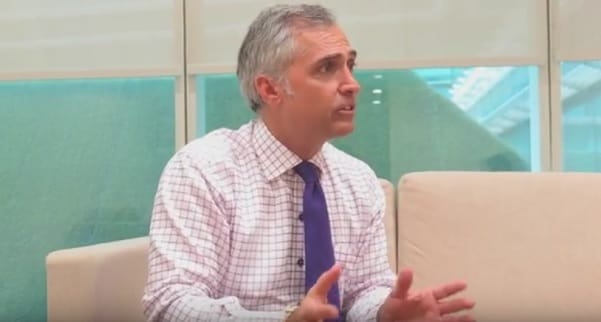The Trans-Pacific Partnership (TPP) has proven to be a flashpoint in the US Presidential race, with candidates voicing criticism of the trade deal. But in this 3-on-3 interview with SIIA, Steve Okun, Vice Chairman – TPP of Asia Pacific Council of American Chambers of Commerce in Singapore, argues that the US absolutely needs the TPP to avoid falling behind in trade and economic engagement – and the deal will become a reality despite the opposition.
Our 3-on-3 series asks three key questions in three minutes, with views from experts and thought leaders.
Q. What benefits will the TPP bring to the US economy?
A. The TPP brings many benefits to the US economy. One is that it connects the US economy to some of the fastest growing markets, like Vietnam and Malaysia, and also large markets like Japan. Second, it keeps the US engaged in the Asia-Pacific when it comes to trade liberalisation. Trade liberalisation agreements are being done in the Asia-Pacific all the time. The question is, will the US have a seat at the table, are the benefits going to accrue to US companies or are they going to accrue to others and keep us on an unlevel playing field? Look at Australia, they’ve signed three FTAs in the past 12 months. That’s more FTAs than the US has in all the Asia-Pacific. We are falling behind when it comes to trade rights and we have to stay in the game. The TPP will keep us in the game, and we will actually have to improve US ability to do business in Asia, because it’s really the first 21st century free trade agreement we have, it addresses 21st century business issues, like intellectual property issues, like financial services rights, like foreign direct investment rights. It sets up regimes for investor-state dispute settlement. So it brings a lot more to businesses, and the way we do business in the 21st century, than any other trade agreement. That’s why it is so important and that’s why it’s so beneficial to the US.
Q. With the anti-trade rhetoric growing in America, what is the likelihood of the TPP materialising in the near future?
A. There is a strong likelihood that the TPP will get done in the near future. There is time this year for the US Congress to pass the TPP. It will likely be in the lame duck session of Congress which is after the Presidential election in November but before the new Congress comes in in January. So that will give time for the campaign rhethoric to die down, it will give time for people, the voters in the Congress to look at the TPP from a substantive perspective rather than a political perspective. And also if you look at TPA, the Trade Promotion Authority, and that’s what gave the President the right, from the Congress, to negotiate the TPP and enter into it, that passed a year ago by this very Congress, no change in the composition of the Congress – and that should be a sign they will pass the TPP. It’s going to be tough, it’s probably going to come down to the last minute, but there is still a likelihood that it will get done this year.
Q. What is the probability of America’s next President championing for the US to deepen its presence and engagement across Asia?
A. The next President, whether a Democrat or Republican, is going to recognise the need for the US to remain engaged in Asia. Some of the fastest growing economies are here, the greatest opportunities for business are really in the Asia-Pacific, the political and strategic importance of Asia is only going to grow over time. Even if you look at the rhethoric going on in the primaries right now, both on the Democratic and Republican side, it is not an anti-Asian strategy, it is not an anti-Asia Engagement proposal, it’s specifically about the TPP and some of the other trade agreements we’ve negotiated. But everyone recognises – the diplomatic community, the military community, the business community – recognises the need for engagement in Asia. And we’re certainly going to make the case to the next President, be it Democrat or Republican – is the business community who live and work in Asia, is the need to not only remain engaged here, but to grow our engagement.




